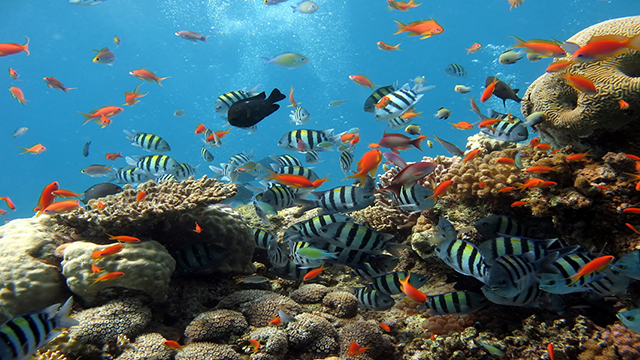Jakarta (Greeners) – Climate change impacts on coral reefs marked by massive bleaching resulting to vanishing thousands of fish species and other organisms, along with threats to ecosystem and marine related livelihood.
To save coral reefs, Ministry of Marine and Fisheries (Kementerian Kelautan dan Perikanan/KKP) have been campaigning, provide assistance to reduce people’s activities in the sea, and expanding coral reefs conservation areas.
“For the coral reef protection program, we have included coral reef conservation development which targeted 20 million hectares by 2020 but for 2018-2019, they need to achieve the target as instructed by Minister Susi. Currently, the number reaches up to 19.17 million hectares,” said Director of Conservation and Marine Biodiversity, Andi Rusandi, in Jakarta, on Thursday (22/2).
READ ALSO: Ministry of Marine and Fisheries Affairs To Finalize National Strategic Zoning Plans in 2018
Conservation areas being announced and managed, said Rusandi, were recommendations from scientists, local government and ministry. These areas must get approval from KKP.
Currently, coral reef conservation areas are spread into 172 locations with a total of 19.17 million hectares, such as Sabu Raijua of East Nusa Tenggara, Anambas in Riau islands, Banda and Aru of Maluku.
READ ALSO: Avoid Overlapping Authorities in Conservation Law
Based on LIPI data, Indonesia’s coral reef areas cover a total of 2,517,858 hectares, — Bali with 8,837 hectares, Java with 67,869 hectares, Kalimantan with 119,304 hectares, Maluku with 439,110 hectares, Nusa Tenggara with 272,123 hectares, Papua with 269,402 hectares, Sulawesi with 862,627 hectares and Sumatra with 478,857 hectares –.
“Coral reef with excellent condition is 6.3 percent while bad condition is 63 percent. If there’s no coral reef management, this condition will continue to decline,” he said.
Furthermore, he said that lack of campaign was one of the obstacle in coral reef conservation. As result, conservation areas is considered as exclusive areas with less benefit to local people. Local government, he added, does not fully understood about conservation areas.
Reports by Dewi Purningsih



















































